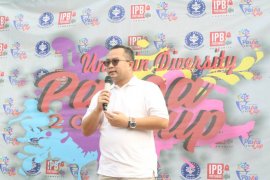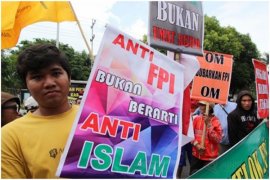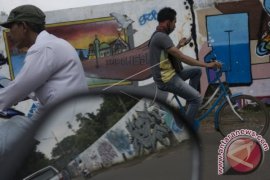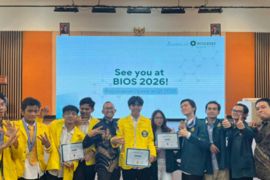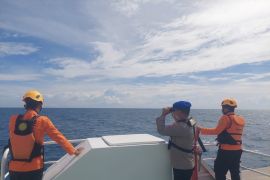Globalization led to the blurring of boundaries between countries. Post-cold war won by the western block, the US became a superpower capable of intervening in other countries initially using four issues namely democratization, environment, human rights and terrorism, and in its development is emphasized on three strategic issues and "sexier" namely food, clean water and energy. In exert influence in the developing world, a superpower proxy war and asymmetrical by utilizing third party.
Indonesia's current condition is being tested. In the New Order, law enforcement can be done by means of repressive using Subversion Law, but this time after the Subversion Law is revoked, then law enforcement should be based on the laws and regulations are still valid. With law enforcement constrained, then the ideology that goes through globalization is very easy to expand, including terrorism.
Terrorism and radicalism increasingly easy to entry to all countries including Indonesia, due to the progresses of unstoppable social media, but on the other maturity in using social media wisely not been sublimated in Indonesian society, especially the younger generation who were subjected to "proxy war" in the era of "an information edge" today.
Young, Terrorism and Radicalism
In September-November 2016, the International NGO Forum on Indonesian Development (INFID) in collaboration with the Network Gus Durian Indonesia do two activities. First, record the perceptions of young people against religious radicalization and violent extremism through surveys. Secondly, knowing the grand narrative of extremism, understand the key messages of extremism, and knowing the pattern of spread of extremism messages via internet mapping and social media.
The survey was conducted with interviews or face-to-face with 1,200 selected respondents in six major cities in Indonesia such as Bandung, Yogyakarta, Solo, Surabaya, Pontianak and Makassar. The respondents were young people aged 15-30 years old with a balanced sex ratio of 50% male and 50% female and method Proportionate Stratified Random Sampling (sampling error is 2.98% with a 95% confidence level).
From the survey found the majority of youth (88.2%) strongly disagree with religious groups that use violence, while young people who agree with the religious groups that use violence only by 3.8%, the remaining 8% did not know and did not answer. Reasons not agree because it is inconsistent with the values of religion (44.3%), inhuman (18.1%), making tarnished religion (16.7%) and unlawful (9.7%).
In terms of perception and tolerance of young generation, 55% of respondents disagreed justification combustion Tolikara Mosque, the Church in Aceh, Vihara in Tanjung Balai because they do not respect the religion of the majority. Additional key findings from the 1200 respondents, 10, 9% strongly disagree and 57% do not agree the view is better to have leaders who are considered criminals rather than led by non-Muslims. From the aspect of giving during the holiday greetings religions, 40.7% of Muslim respondents agreed that congratulations to the people of other religions do not violate Islamic law, while 39.1% thought otherwise.
In the aspect of nationalism, 94.5% of respondents feel proud as an Indonesian citizen. 29.7% they were proud because the diversity of ethnic and religious respect, 26, 8% are proud because the people who help each other, 15, 3% proud of its beautiful natural and varied seamounts, 8.4% for a peaceful country and protect citizens, while the rest answered others and do not know or has no answer.
Internet and Social Media Mapping
Still referring to survey results INFID and Gus Network Durian Indonesia, from the mapping of the Internet and social media, specifically conducted to determine the main narrative of extremism, understand the key messages of extremism, and knowing the pattern of spreading the message of extremism. The study was conducted in the period from October 26 to November 26, 2016. The mapping is done by observing sites online media, social media (twitter, Instagram, and Facebook), private messaging app (whatsapp and telegraph), and youtube.
Following various social media platforms, data retrieval means adapted to the characteristics of each platform. On social media platforms such as Instagram, facebook, and twitter data retrieval process is done with the help of search tools (software) designed specifically for this mapping. By using the framework of ICCT (The International Centre for Counter-Terrorism), setting out a few key words from the user assessment at an early stage. Some of the keywords that appear most frequently are heathen, heretic, Framing analysis to get the main narrative and key messages.
In general it can be concluded that the key messages circulating on social media platforms and websites carry the same main narrative, namely that Muslims had been treated unfairly and the threats and attacks from outsiders (otherness). In response to this situation, call the solution is to re-enforce Islamic law or undergo a whole from the individual level to the country and fight against those groups considered threatening. Footing motivational is that things that should be done is a command or a religious obligation that should not be denied. The main narrative is revealed in a few key messages, such as reject democracy, misdirection and the heathens, and others.
Another trend caught on the distribution of key messages is strengthening approach single interpretation of Islam. Such as the appearance of labeled Islami, or the interpretation of passages of Scripture. This contradicts the wisdom of the leaders of Muslims in Indonesia are generally respected schools of distinction and opinions.
Despite intensified in social media and social networking platform, the messages of extremism have not mastered the mainstream view of the Indonesian public. This is consistent with the findings of a survey of young people's perception of radical action. By knowing the main narrative and key messages of extremism, as well as the ever aligning our social capital: trust young people against Pancasila and national spirit, we can determine the steps held its speed tide of radicalism and extremism in Indonesia.
According to Beka Ulung Hapsara, Advocacy Manager INFID, Indonesia can still be optimistic about the attitudes of young people there because the majority of young people do not like the actions of radical and extreme religious-based despite a downward trend tolerance among young people.
On the other hand, the values of diversity is still a major factor that made the young man proud of Indonesia and unifying the younger generation. In addition, how the scholars transferring the teachings of Islam as the religion of the majority is correct, wise and stressed to the teachings of Islam which substansialis to our young people.
This is important because in a religious perspective, there are two patterns of view religion is Islam, first by structuralisms means promoting formal symbols such as Islamic law and Islamic state, so it is stated that it is necessary the establishment of an Islamic state in advance. The worldview of both by the substantial factors, means looking at substance with the understanding that Islamic law should not be run by the Islamic state.
Theologian in Indonesia generally see Islam with substantial side, but with globalization, emerging ideologyof puritans that cause distorted religion, causing groups often heathens other groups, intolerant attitude to the emergence of terrorist groups.
Again, stakeholders and policy makers in Indonesia must immediately make a "grand scenario and story strategy" onslaught invitation to join terror groups scattered in various Medsos. One way to make grand scenario and story strategy in social media as a good and effective ways is studying various surveys, invite discussion of various communities netizens and experts in the field of social communication and mass communication. Only with the involvement of those who are professional and have a wide network, then our step to prevent young people to actradically will be eliminated.
*) The author is a former Director of Mass Communication in SISI Jakarta. Alumnus of the University of Udayana, Bali.
Knitting Diversity and Counteracting Radicalism
Jumat, 20 Januari 2017 15:48 WIB
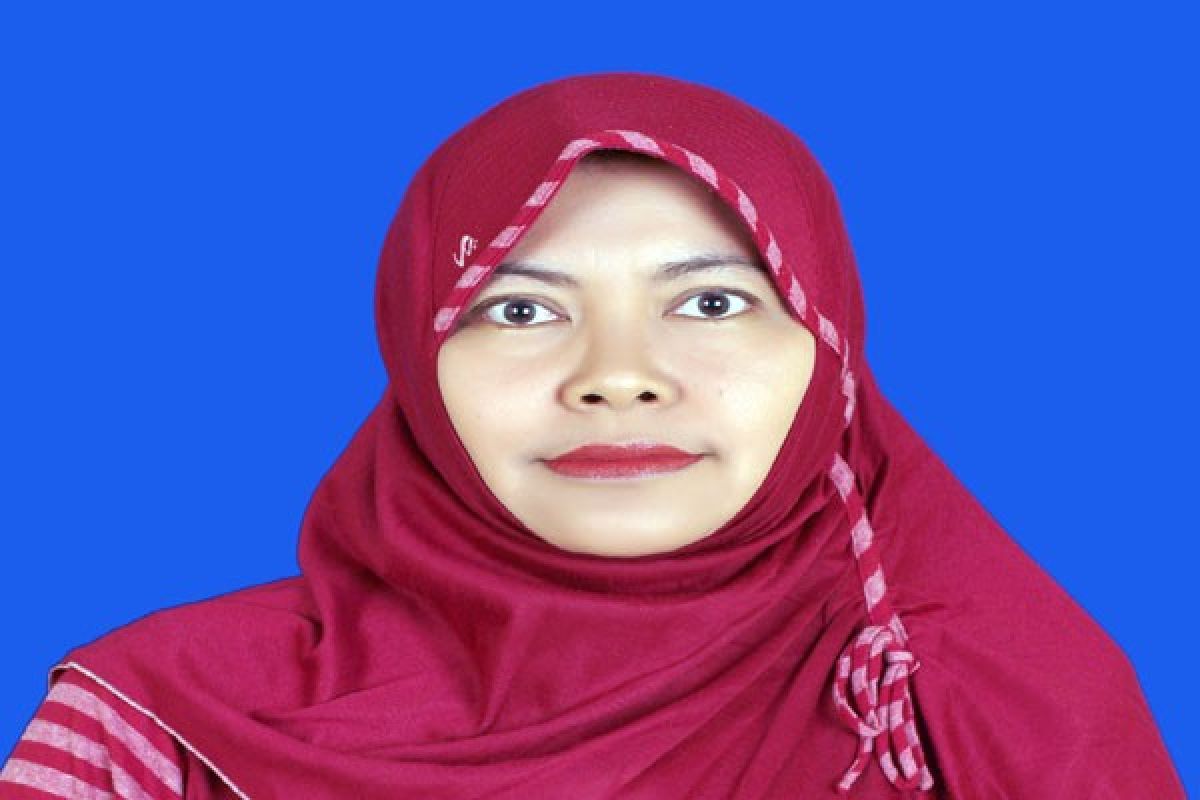
Otjih Sewandarijatun. (ANTARA FOTO/Ist/Dokumentasi Pribadi/Dok).
Stakeholders and policy makers in Indonesia must immediately make a "grand scenario and story strategy" onslaught invitation to join terror groups scattered in various Medsos.


